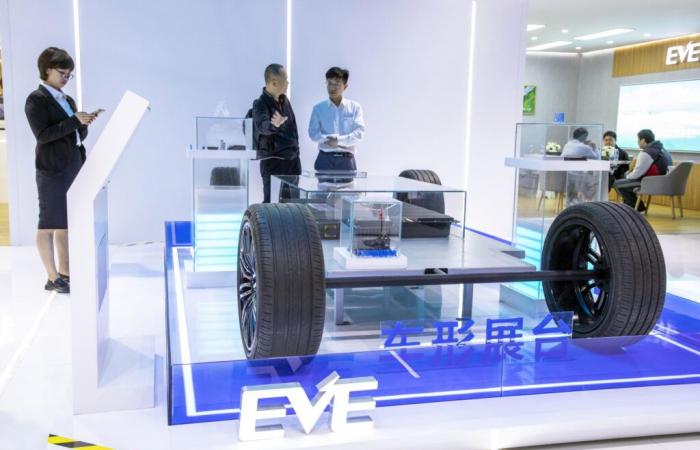Electric car news
The race for batteries for electric cars is accelerating in the automobile industry. Tesla marks a new strategic turning point by joining forces with EVE Energy, a Chinese giant already a partner of BMW. This promising alliance redefines the challenges of large-scale production of zero-emission vehicles.
A new strategic player in the Tesla ecosystem
The rumors that have been circulating since 2021 are finally coming to fruition: Tesla is preparing to diversify its battery supply by signing a major agreement with EVE Energy. Production will start at a Malaysian factory, with commissioning scheduled for 2026. This strategic decision is part of the American manufacturer’s desire to optimize its production costs while guaranteeing sufficient production capacity to meet growing demand.
The electric car manufacturer, which historically collaborated with Panasonic, has gradually expanded its circle of partners to include major players like CATL, LG, BYD et Samsung. The arrival of EVE Energy in this ecosystem demonstrates a multiple supply strategy, essential to secure large-scale production.
LFP technology at the heart of the strategy
The agreement specifically relates to the supply of LFP (Lithium-Iron-Phosphate) cells, a technology which presents significant advantages:
- And production cost reduced by 30% compared to traditional batteries
- A extended lifespan exceeding 3000 charge cycles
- Superior thermal stability guaranteeing better safety
- The absence of rare materials like cobalt or nickel
This technological choice meets a dual requirement: reducing production costs while maintaining high quality standards. Although the energy density of LFP batteries is slightly lower than NMC (Nickel-Manganese-Cobalt) batteries, their value for money makes them a particularly attractive option for entry- and mid-range vehicles.
European expansion and its implications
EVE Energy does not limit its development to Asia. The Chinese manufacturer plans to open a factory in Debrecen, Hungarythus strengthening its presence on the European market. This strategic location will reduce supply times and logistics costs for European manufacturers.
Geographic proximity to the European production sites of Tesla and BMW represents a major advantage. This location also meets the requirements of the European Union in terms of local production and reduction of the carbon footprint linked to the transport of batteries.
Market Impact and Future Outlook
This collaboration between Tesla and EVE Energy could have significant repercussions on the electric car market. The reduction in production costs, estimated between 2000 and 3000 euros per vehicleshould be reflected in the final price of Tesla models equipped with these new batteries.
The automobile industry is carefully observing this development, which could accelerate the democratization of electric vehicles. The drop in prices combined with the improvement in the performance of LFP batteries represents a decisive step towards electric mobility accessible to the greatest number of people.
Written by Alexandra Dujonc
After studying electrical engineering, I worked on research and development projects aimed at improving the charging capacity of electric cars, which I made into my specialty! I put my in-depth knowledge on the subject of electric charging at your disposal.
React to the article







